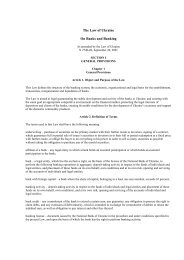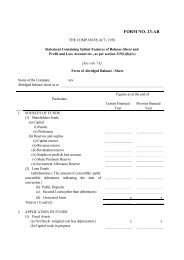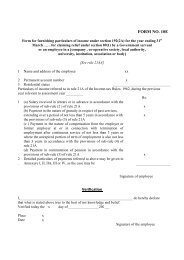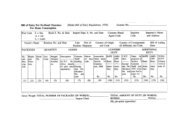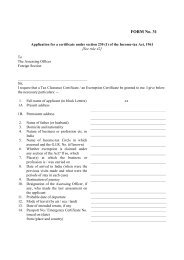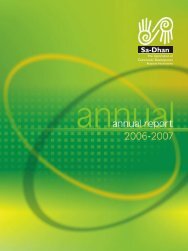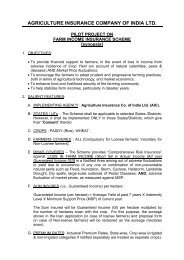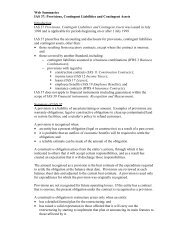Tracking Financial Performance Standards of ... - Sa-Dhan
Tracking Financial Performance Standards of ... - Sa-Dhan
Tracking Financial Performance Standards of ... - Sa-Dhan
- No tags were found...
Create successful ePaper yourself
Turn your PDF publications into a flip-book with our unique Google optimized e-Paper software.
<strong>Tracking</strong> <strong>Financial</strong> <strong>Performance</strong> <strong>Standards</strong> <strong>of</strong> Micr<strong>of</strong>inance InstitutionsTermLong-Term InvestmentLong-Term LiabilitiesLossManagement AccountingMarginMarket RateMarketable SecuritiesMatching PrincipleMatchingMaturity DateMaturity ValueMonetary ItemsNatural Business YearNatural Business YearNegotiableDefinitionAn investment that is not intended to be a ready source <strong>of</strong> cash in the normaloperations <strong>of</strong> a business and that is listed in the "investments" section <strong>of</strong> thebalance sheet. Investments that management intends to hold for more thanone year.Debts that will not come due for payment within one year. Examples arelong-term notes payable and mortgages payable. A liability that is not due fora comparatively long time (usually more than one year).Excess <strong>of</strong> expenditures over revenue for a period or activity.Reporting designed to assist management in decision-making, planning, andcontrol. Also known as managerial accounting.Excess <strong>of</strong> selling price over the unit cost.The rate <strong>of</strong> interest a company must pay to borrow funds currently.Stocks and other negotiable instruments which can be easily bought and soldon either listed exchanges or over-the-counter markets. <strong>Financial</strong> assets, suchas stocks and bonds, that companies can convert to cash. Listed as assets onthe statement <strong>of</strong> financial position. An investment in a security that can bereadily sold when cash is needed.A fundamental concept <strong>of</strong> basic accounting. In any one given accountingperiod, you should try to match the revenue you are reporting with the expensesit took to generate that revenue in the same time period, or over the periods inwhich you will be receiving benefits from that expenditure. A simple exampleis depreciation expense. If you buy a car that will last for many years, youdon't write <strong>of</strong>f the cost <strong>of</strong> that car all at once. Instead, you take depreciationdeductions over the car's estimated useful life. Thus, you've "matched" theexpense, or cost, <strong>of</strong> the building with the benefits it produces, over the course<strong>of</strong> the years it will be in service. A fundamental rule <strong>of</strong> basic accounting. Inany one given accounting period, you should try to match the revenue you arereporting with the expenses it took. Requires that revenue earned during anaccounting period be <strong>of</strong>fset by the expenses that were necessary to producethat revenue, so that the accurate net income or net loss for the period can bereportedThe principle <strong>of</strong> accounting that all revenues should be matched with theexpenses incurred in earning those revenues during a period <strong>of</strong> time.The date on which the principal (amount) must be repaidThe principal plus the interest on an instrument; the amount that must bepaid to the payee on the maturity date <strong>of</strong> the instrument. The amount due atthe maturity or due date <strong>of</strong> an instrument.Definite fixed amounts stated in terms <strong>of</strong> currency units, either by law or bycontract agreement. Money or a claim to receive money or an obligation topay a fixed amount <strong>of</strong> money.A fiscal year ending at a business's lowest point <strong>of</strong> activity.A year that ends when a business's activities have reached the lowest point inits annual operating cycle.Able to be transferred by endorsement to another party.130


